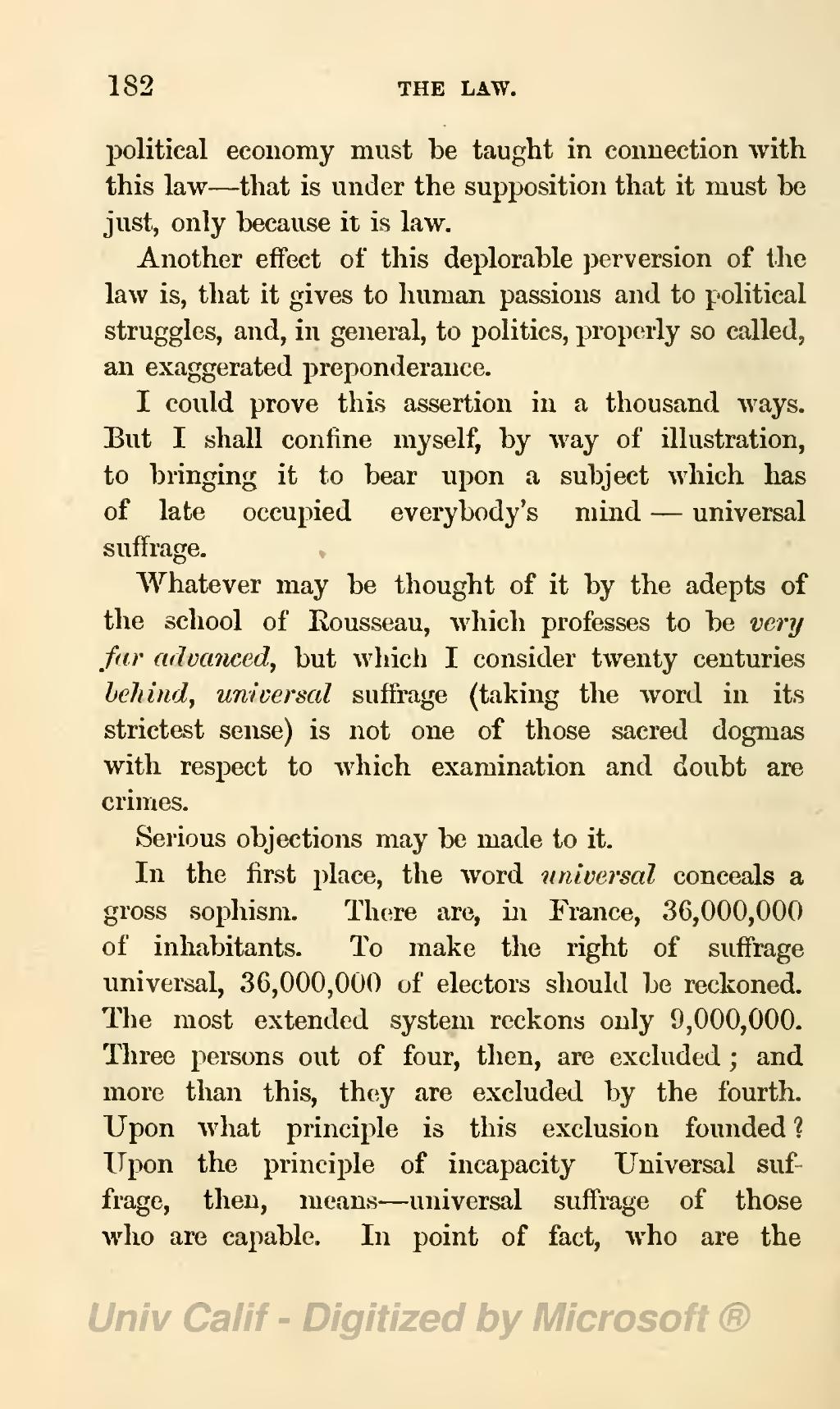political economy must be taught in connection with this law—that is under the supposition that it must be just, only because it is law.
Another effect of this deplorable perversion of the law is, that it gives to human passions and to political struggles, and, in general, to politics, properly so called, an exaggerated preponderance.
I could prove this assertion in a thousand ways. But I shall confine myself, by way of illustration, to bringing it to bear upon a subject which has of late occupied everybody's mind—universal suffrage.
Whatever may be thought of it by the adepts of the school of Rousseau, which professes to be very far advanced, but which I consider twenty centuries behind, universal suffrage (taking the word in its strictest sense) is not one of those sacred dogmas with respect to which examination and doubt are crimes.
Serious objections may be made to it.
In the first place, the word universal conceals a gross sophism. There are, in France, 36,000,000 of inhabitants. To make the right of suffrage universal, 36,000,000 of electors should be reckoned. The most extended system reckons only 9,000,000. Three persons out of four, then, are excluded; and more than this, they are excluded by the fourth. Upon what principle is this exclusion founded? Upon the principle of incapacity. Universal suffrage, then, means—universal suffrage of those who are capable. In point of fact, who are the
